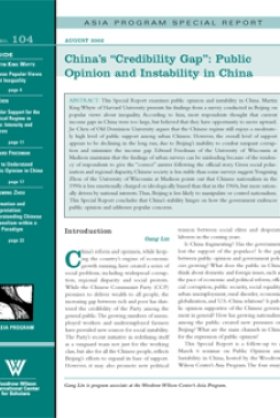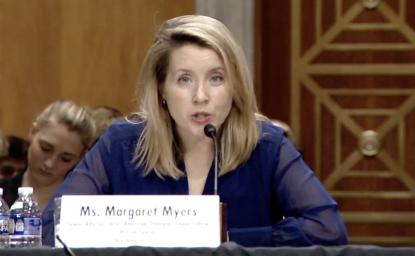China's Credibility Gap: Public Opinion and Instability in China


This Special Report examines public opinion and instability in China. Martin King Whyte of Harvard University presents his findings from a survey conducted in Beijing on popular views about inequality. According to him, most respondents thought that current income gaps in China were too large, but believed that they have opportunity to move upward. Jie Chen of Old Dominion University argues that the Chinese regime still enjoys a moderately high level of public support among urban Chinese. However, the overall level of support appears to be declining in the long run, due to Beijing’s inability to combat rampant corruption and minimize the income gap. Edward Friedman of the University of Wisconsin at Madison maintains that the findings of urban surveys can be misleading because of the tendency of respondents to give the “correct” answer following the official story. Given social polarization and regional disparity, Chinese society is less stable than some surveys suggest.Yongming Zhou of the University of Wisconsin at Madison points out that Chinese nationalism in the 1990s is less emotionally charged or ideologically biased than that in the 1960s, but more rationally driven by national interests.Thus, Beijing is less likely to manipulate or control nationalism. This Special Report concludes that China’s stability hinges on how the government embraces public opinion and addresses popular concerns.

Indo-Pacific Program
The Indo-Pacific Program promotes policy debate and intellectual discussions on US interests in the Asia-Pacific as well as political, economic, security, and social issues relating to the world’s most populous and economically dynamic region. Read more

Explore More
Browse Insights & Analysis
Insights: Anka Lee – Asia & the U.S. National Security Strategy

Myanmar’s Junta and the 2026 Elections: A Fig Leaf for Legitimacy?

